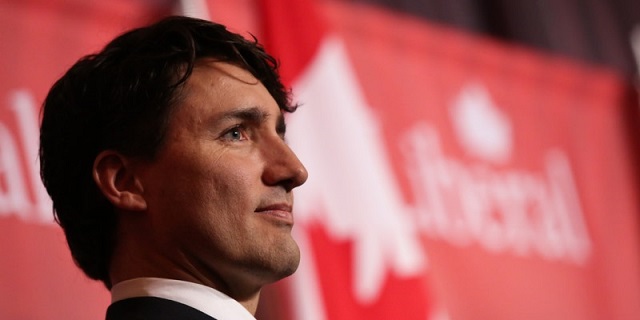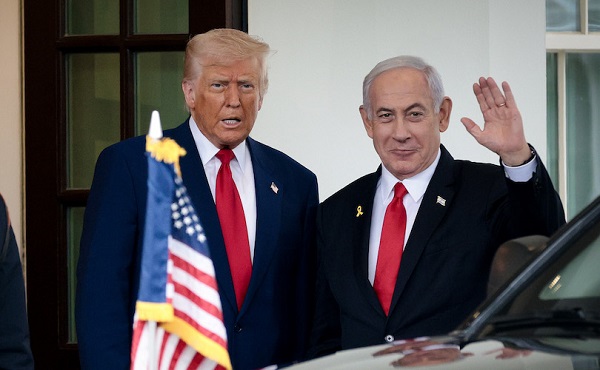Economy
Ottawa should follow Britain and tap the brakes on ‘net zero’

From the Fraser Institute
In a recent speech, British Prime Minister Rishi Sunak put a dent in the façade of the global “net zero” greenhouse gas emission agenda—that is, the idea that countries will emit no more greenhouse gases (such as CO2 and methane) into the air than are taken back out and “sequestered” in some form that won’t increase atmospheric heating. The net zero framework has subsumed virtually all energy, environment and natural resource policies in many countries including Canada.
Sunak did not reject net zero, but he clearly took his foot off the gas and started tapping the brake, acknowledging that people are not happy with the way it’s playing out: “We seem to have defaulted to an approach which will impose unacceptable costs on hard-pressed British families. Costs that no one was ever told about, and which may not actually be necessary to deliver the emissions reduction that we need.”
And Sunak extended some timelines in the United Kingdom’s net zero program. His government increased the deadline for ceasing sales of new internal combustion vehicles from 2030 to 2035. And rather than phasing out the sale of all gas boilers by 2035, the U.K. will phase out 80 percent of them by that date. The government will also now not require homeowners and landlords to meet various energy efficiency guidelines. Small changes to a large program, but a pioneering move away from today’s net zero timelines.
Here at home, Canadians also labour under the economic impacts of the Trudeau government’s net zero zeal. Canada’s carbon tax, a key net zero pillar, slated to rise to $170 per tonne by 2030, will put the hurt on Canadian households well in excess of the rebates given out by Ottawa. And a $170-per tonne carbon tax will cause the economy to shrink by about 1.8 per cent, causing a permanent loss of nearly 185,000 jobs and reducing real incomes in every province.
Similarly, according to the Parliamentary Budget Officer, 60 per cent of households in Alberta, Ontario, Saskatchewan and Manitoba—the four provinces where the federal carbon tax applies—will pay more in carbon taxes than they get in rebates. By 2030, 80 per cent of households in Ontario and Alberta will be worse off and 60 per cent will be worse off in Manitoba and Saskatchewan.
Of course, the cost impacts of Canada’s net zero plan will likely expand well beyond the carbon tax, with emission caps on Canada’s oil and gas sector, a net zero goal for Canadian waste management, ambitious (some would say impossible) mandates to electrify transportation in Canada, new “Clean Electricity Regulations” that will raise the cost of electricity, energy-efficient construction standards that can only further increase the already insane costs of housing and commercial property development in Canada, and possible restrictions on agricultural use of fertilizers that could raise Canadian food prices beyond even today’s outrageous levels.
Sunak’s net zero slowdown is not exactly the stuff of Brexit, but it may be a harbinger of things to come for other countries shaking under the weight of their own net zero ambitions. Most importantly, it’s a precedent other governments can invoke to justify adjusting their own destructive net zero programs. The Trudeau government would do well to follow Sunak’s lead and reduce net zero targets, soften timelines, remove regulatory burdens, and generally reform the policy before the full brunt of the economic impact throws more Canadian households into the red.
Author:
Economy
Trump opens door to Iranian oil exports

This article supplied by Troy Media.
U.S. President Donald Trump’s chaotic foreign policy is unravelling years of pressure on Iran and fuelling a surge of Iranian oil into global markets. His recent pivot to allow China to buy Iranian crude, despite previously trying to crush those exports, marks a sharp shift from strategic pressure to transactional diplomacy.
This unpredictability isn’t just confusing allies—it’s transforming global oil flows. One day, Trump vetoes an Israeli plan to assassinate Iran’s supreme leader, Ayatollah Khamenei. Days later, he calls for Iran’s unconditional surrender. After announcing a ceasefire between Iran, Israel and the United States, Trump praises both sides then lashes out at them the next day.
The biggest shock came when Trump posted on Truth Social that “China can now continue to purchase Oil from Iran. Hopefully, they will be purchasing plenty from the U.S., also.” The statement reversed the “maximum pressure” campaign he reinstated in February, which aimed to drive Iran’s oil exports to zero. The campaign reimposes sanctions on Tehran, threatening penalties on any country or company buying Iranian crude,
with the goal of crippling Iran’s economy and nuclear ambitions.
This wasn’t foreign policy—it was deal-making. Trump is brokering calm in the Middle East not for strategy, but to boost American oil sales to China. And in the process, he’s giving Iran room to move.
The effects of this shift in U.S. policy are already visible in trade data. Chinese imports of Iranian crude hit record levels in June. Ship-tracking firm Vortexa reported more than 1.8 million barrels per day imported between June 1 and 20. Kpler data, covering June 1 to 27, showed a 1.46 million bpd average, nearly 500,000 more than in May.
Much of the supply came from discounted May loadings destined for China’s independent refineries—the so-called “teapots”—stocking up ahead of peak summer demand. After hostilities broke out between Iran and Israel on June 12, Iran ramped up exports even further, increasing daily crude shipments by 44 per cent within a week.
Iran is under heavy U.S. sanctions, and its oil is typically sold at a discount, especially to China, the world’s largest oil importer. These discounted barrels undercut other exporters, including U.S. allies and global producers like Canada, reducing global prices and shifting power dynamics in the energy market.
All of this happened with full knowledge of the U.S. administration. Analysts now expect Iranian crude to continue flowing freely, as long as Trump sees strategic or economic value in it—though that position could reverse without warning.
Complicating matters is progress toward a U.S.-China trade deal. Commerce Secretary Howard Lutnick told reporters that an agreement reached in May has now been finalized. China later confirmed the understanding. Trump’s oil concession may be part of that broader détente, but it comes at the cost of any consistent pressure on Iran.
Meanwhile, despite Trump’s claims of obliterating Iran’s nuclear program, early reports suggest U.S. strikes merely delayed Tehran’s capabilities by a few months. The public posture of strength contrasts with a quieter reality: Iranian oil is once again flooding global markets.
With OPEC+ also boosting output monthly, there is no shortage of crude on the horizon. In fact, oversupply may once again define the market—and Trump’s erratic diplomacy is helping drive it.
For Canadian producers, especially in Alberta, the return of cheap Iranian oil can mean downward pressure on global prices and stiffer competition in key markets. And with global energy supply increasingly shaped by impulsive political decisions, Canada’s energy sector remains vulnerable to forces far beyond its borders.
This is the new reality: unpredictability at the top is shaping the oil market more than any cartel or conflict. And for now, Iran is winning.
Toronto-based Rashid Husain Syed is a highly regarded analyst specializing in energy and politics, particularly in the Middle East. In addition to his contributions to local and international newspapers, Rashid frequently lends his expertise as a speaker at global conferences. Organizations such as the Department of Energy in Washington and the International Energy Agency in Paris have sought his insights on global energy matters.
Troy Media empowers Canadian community news outlets by providing independent, insightful analysis and commentary. Our mission is to support local media in helping Canadians stay informed and engaged by delivering reliable content that strengthens community connections and deepens understanding across the country.
Alberta
Pierre Poilievre – Per Capita, Hardisty, Alberta Is the Most Important Little Town In Canada

From Pierre Poilievre
-

 Crime2 days ago
Crime2 days agoBryan Kohberger avoids death penalty in brutal killing of four Idaho students
-

 Business2 days ago
Business2 days agoWhy it’s time to repeal the oil tanker ban on B.C.’s north coast
-

 Energy2 days ago
Energy2 days agoIf Canada Wants to be the World’s Energy Partner, We Need to Act Like It
-

 Alberta2 days ago
Alberta2 days agoPierre Poilievre – Per Capita, Hardisty, Alberta Is the Most Important Little Town In Canada
-

 MxM News2 days ago
MxM News2 days agoUPenn strips Lia Thomas of women’s swimming titles after Title IX investigation
-

 Alberta2 days ago
Alberta2 days agoAlberta Provincial Police – New chief of Independent Agency Police Service
-

 International1 day ago
International1 day agoWoman wins settlement after YMCA banned her for complaining about man in girls’ locker room
-

 Business2 days ago
Business2 days agoLatest shakedown attempt by Canada Post underscores need for privatization








